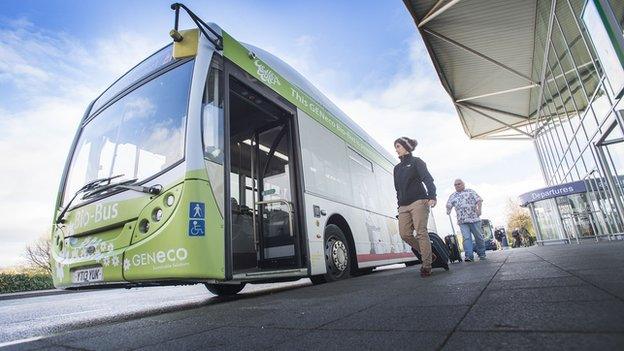Bristol biomethane gas-powered bus refuelling station opens
- Published
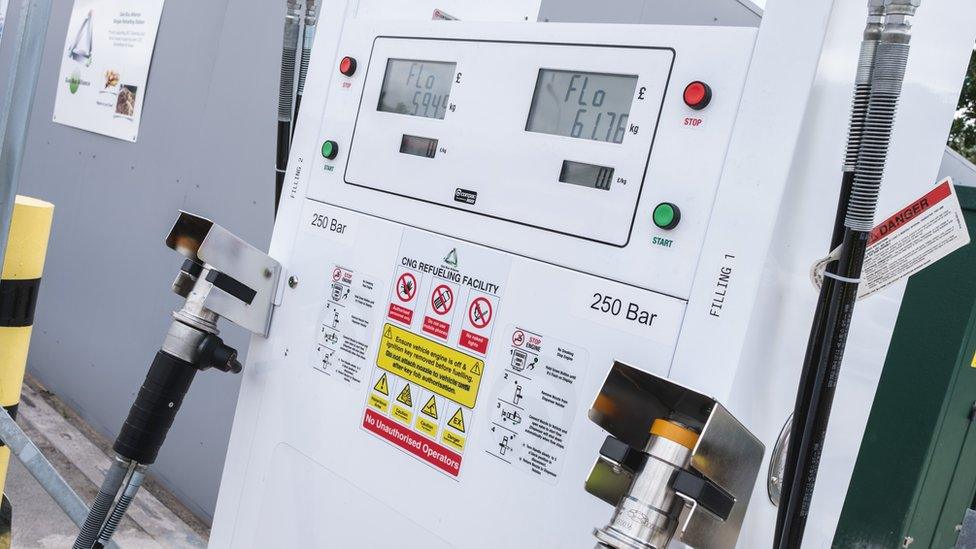
The new £960,000 refuelling station in Bedminster replaces a temporary facility
A permanent fuel station for a fleet of buses running on gas produced by food waste has opened in Bristol.
The £960,000 station in Bedminster will serve the city's 22 biomethane gas-powered buses, providing fuel storage and easier refilling at the pumps.
Biomethane is a natural gas produced by breaking down organic materials such as food waste and manure.
The UK's first "Bio-Bus" powered by sewage, as well as food waste launched in Bristol in November 2014.
Nicknamed the "poo bus", it was fuelled by biomethane gas generated at sewage treatment works in Avonmouth.
As the number of bio gas-powered buses across the country grew, these newer models now rely on food waste to meet demand.
The new station, at the Bristol Community Transport (BCT) bus depot, replaces a temporary facility and will fuel buses on the m1 Metrobus route, operated by BCT under contract to First Bus.
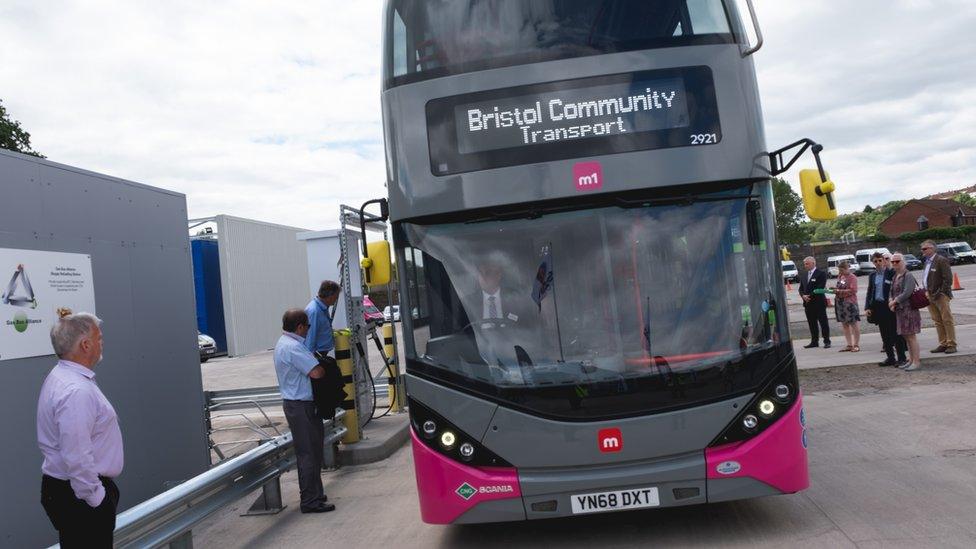
Bristol has 22 biomethane gas-powered buses in operation with another 77 in the pipeline
First Bus managing director James Freeman said: "We're taking meaningful steps to clean up the city's air.
"That's why we're making significant investments to bring a fleet of biomethane gas buses into Bristol, building on the legacy of the famous 'poo bus'.
"The Metrobus m1 route is paving the way and this new filling station means that biomethane gas buses will now be a permanent feature in the city."
Bristol City Council's cabinet member for transport, Kye Dudd, said: "Last year we declared a climate emergency. As a city we are moving quickly to improve air quality and we will do this in the shortest possible time."
A further 77 biomethane gas-powered buses are planned to roll out in the city by April next year.
- Published25 March 2015
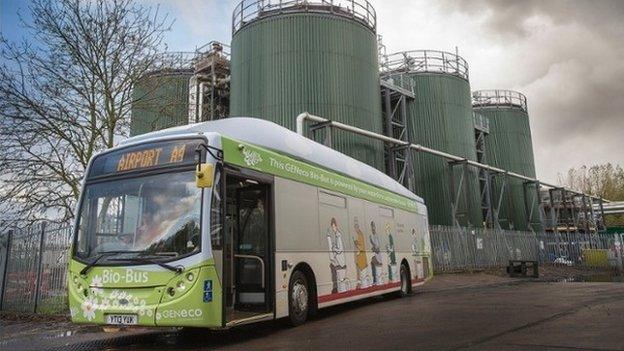
- Published16 November 2016
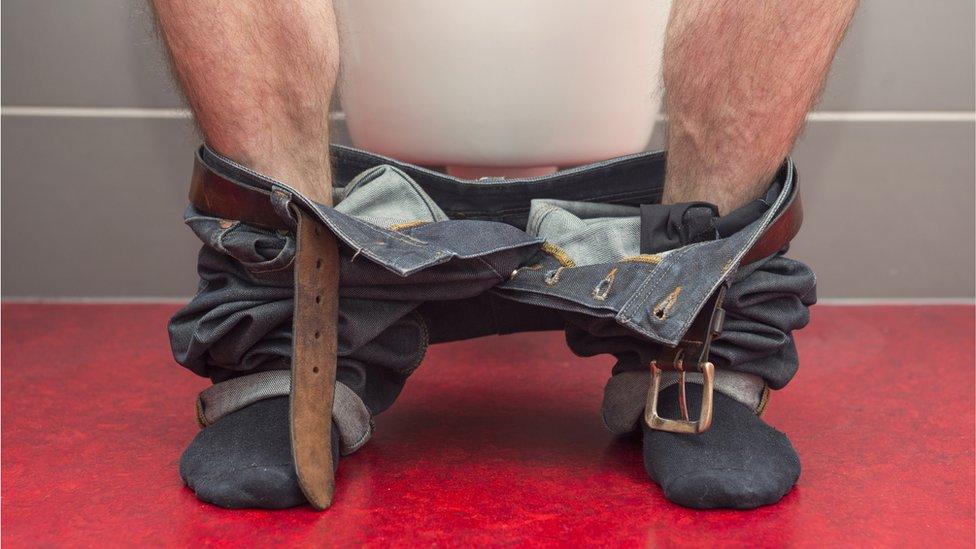
- Published25 November 2015

- Published20 November 2014
